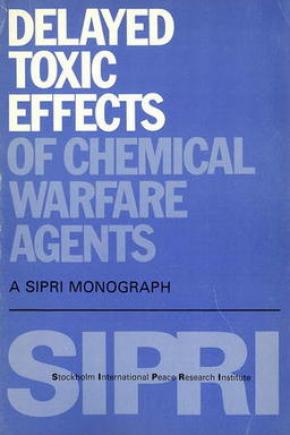Delayed Toxic Effects of Chemical Warfare Agents
The effects of chemical warfare agents are well known—the painful blisters caused by mustard gas, the lung damage caused by phosgene, the convulsions and paralysis caused by organophosphorus compounds, and so on. However, in addition to these acute effects, most chemical warfare agents are liable to cause delayed effects, such as cancers and injuries to the liver, bone marrow and nervous system.
After discussing the delayed organ-specific and neural effects of such poisons as phosgene, mustard gas, lacrimators, psychochemicals, antiplant agents and organophosphorus compounds, this book appraises alleged mutagenic, teratogenic and embryotoxic effects in human beings. It emphasizes the need for further research in various fields: the metabolism of chemical warfare agents; epidemiological and other clinical studies of workers who are known to have handled such chemicals; and antidotal therapy.
1. Introduction
2. Delayed lesions—an historical résumé
3. Delayed lesions caused by 'classic' CW agents
4. Delayed lesions caused by other militarily important poisons
5. Delayed lesions caused by organophosphorus CW agents
6. Summary and conclusions

